Document Shows Iranian Protester Raped Before Murder

A recently unveiled document has revealed that 16-year-old Nika Shakarami was raped by state-backed security during the Women, Life, Freedom protests.

A recently unveiled document has revealed that 16-year-old Nika Shakarami was raped by state-backed security during the Women, Life, Freedom protests.
The document, circulating on social media and seemingly discovered among a trove of files accessed after a hacktivist group breached the servers of the Iranian judiciary on Tuesday, contains evidence confirming that Shakarami had been subjected to rape amid a state sanctioned campaign of sexual violence as documented by rights groups.
The trove of documents obtained by the hacktivist group Edalat-e Ali covers a wide range of sensitive topics, spanning from internal discussions within the National Security Council following Mahsa Amini's death to efforts aimed at curbing unauthorized VPN vendors, protests against the 2020 employment examination, and cases related to economic corruption.
Abbas Masjedi Arani, head of the Forensic Medicine Organization has sent the "very confidential" letter to the Supreme National Security Council, explicitly stating, "In the genital examination, signs indicating assault or rough sexual intercourse were evident."
Nika Shakarami, a 16-year-old, was abducted and murdered by security forces during the anti-regime protests which swept Iran in 2022 following the death of Mahsa Amini in police custody.
Nika's final communication with a friend in September detailed how security forces were pursuing her on Keshavarz Boulevard in Tehran before she mysteriously disappeared. Her family identified her body ten days later, revealing signs of torture, abuse, and beatings inflicted by security forces.
Government agents later seized Nika's body from Khorramabad and secretly buried her in a village in Lorestan, located in western Iran.
The aftermath of Mahsa Amini's death saw over 500 civilians, including children and teens like Nika, lose their lives in the ensuing uprising.
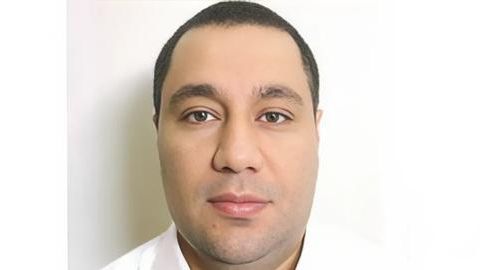
The Czech Republic has extradited a suspect to the United States accused of plotting the Tehran-backed murder of a prominent critic of the Iranian government.
Polad Omarov was handed over to US authorities at Prague's Vaclav Havel Airport on Wednesday morning after his arrest in January last year. Despite the Justice Minister's ruling in favor of extradition back in July, the process encountered delays due to the suspect's appeal to the constitutional court, which was ultimately rejected.
Together with co-defendants Rafat Amirov and Khalid Mehdiyev, Omarov is charged with offenses including murder-for-hire and money laundering in connection with an alleged assassination attempt believed to be backed by Tehran. The target of the attempted assassination is a US citizen residing in Brooklyn, New York, known for vocal criticism of the Iranian government.
US authorities did not reveal the identity of the alleged victim when detailing the charges.
Mehdiyev had previously faced arrest in New York in 2022 for possessing a rifle near the residence of journalist Masih Alinejad, the target of multiple Tehran-backed assassination attempts for her activism against the regime.
In a separate incident in 2021, US prosecutors indicted four individuals suspected of being Iranian intelligence operatives, alleging their involvement in a plot to abduct a journalist and activist in New York. Though the target was not explicitly named, Reuters confirmed the intended victim to be Alinejad.
US prosecutors have disclosed that Omarov held residency in both the Czech Republic and Slovenia. However, the Czech Justice Ministry clarified on Wednesday that he is, in fact, a citizen of Georgia.
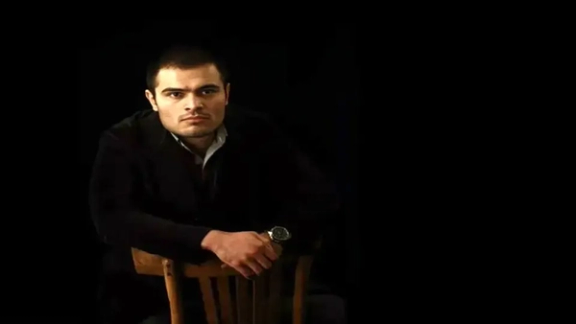
Documents filed by the son of Iran’s Parliamentary Speaker for immigration to Canada reveal that he has hundreds of thousands of dollars in Iranian and foreign banks, Iran International can exclusively reveal.
“I declare that the Account Number 380.8000.13637806.2 (in Iran’s Pasargad Bank) is under my name... and I can spend or transfer 50% of the available balance (12,394,806,106 rials equivalent of $295,114) immediately upon my request,” read part of a letter addressed to the Canadian Immigration Office by Es’hagh Ghalibaf, the son of Mohammad Bagher Ghalibaf. In another document, he declared that he also has over $15,000 in National Australian Bank (NAB) and Australia and New Zealand Bank (ANZ).
While in many countries $300,000 might not be considered a huge sum, in Iran, where government employees earn around $200 a month, it raises questions as to how he has amassed such an amount. The Parliament Speaker, according to some reports, earns around $4,000 a month.
Earlier in the month, Iran International reported about Es’hagh’s five-year attempt to obtain Canadian residency, including paying at least $4,000 to a lawyer and numerous follow-ups by a Canadian citizen at the office of Pierre Poilievre, Canadian lawmaker and the leader of the opposition Conservative Party. Es’hagh’s court document revealed that Polivier's office made "repeated inquiries" about the progress of his application. His office told Iran International that he has not provided a recommendation letter in support of granting the visa.
After reports of the case went viral online, at least two petitions were launched asking the Canadian government to prevent the granting of the visa to the son of a former top Revolutionary Guard commander. “As proud Iranian-Canadians who stand for freedom and democracy in Iran, we find it unimaginable that Canada would consider welcoming the son of such a warmonger, who, along with his father and family, has allegedly participated in money laundering and other corrupt activities,” the petition said.
Following Iran International's scoop on Ghalibaf, Canada's Immigration Minister Marc Miller said the permanent residency application of Es’hagh was refused. “The Iranian regime has engaged in acts of terrorism and systemic human rights violations," he noted. “We stand with the people of Iran.”

In 2022, Es’hagh Ghalibaf filed for the judicial review of the processing time of his immigration application at a Canadian Federal Court and the court’s Justice, John Norris, ruled that his application should be granted. Iran International managed to obtain a 150-page bundle of official documents filed in his immigration case based on Canada's Access to Information Act. Ghalibaf uploaded these documents to the website of the Canadian Immigration Office in late 2018 in order to obtain permanent residency in Canada.
In 2017, Bagher Ghalibaf, who was Tehran’s mayor at the time and running for office in the presidential election, presented a sheet to the cameras during a live debate in which he listed his own assets, those of his wife and his son Es’hagh. He claimed that Es’hagh, his only dependent son at the time, only owned a 1971 Nissan Patrol, a motorcycle, and a total of about one million tomans (10,000 rials or about $250 at the exchange rate then) in savings in four banks.
According to the documents filed for immigration to Canada in 2018, Es’hagh, whose father was covering his living expenses, managed to increase his personal savings about 600 times in about a year. Additionally, documents submitted to the Canadian Immigration Office indicate that Es’hagh purchased and rented out two apartment units in Melbourne within the same short period.

Ghalibaf is a household name in many corruption cases in the Islamic Republic, with his wife, daughter, and his older son Elias implicated in various scandals. During his term as mayor of the capital Tehran, several of his deputies and people in his close circle were sentenced to 20 to 30 years in prison but the judiciary never prosecuted him, maybe because he is a close relative of Supreme Leader Ali Khamenei. During the same period, Ghalibaf handed over lands with a total area of 71,397 square meters to his wife’s charity institute in 2011, apart from another 2.5 trillion rials, nearly $100 million at the time.
An audio file of Iran’s Revolutionary Guard commanders discussing massive financial corruption that leaked in February 2022 also directly involved Ghalibaf.
In March 2022, Ghalibaf’s wife, daughter and son-in-law were caught on camera at Tehran’s Imam Khomeini airport with a large shopping haul of baby clothes and accessories bought from Turkey. The scandal, called ‘SismuniGate’ in Iran, created a media frenzy at the time, with a large number of people as well as several politicians calling for Ghalibaf’s resignation from the parliament.
Ghalibaf became parliament speaker in 2020 after 'revolutionary principlists' or hardliners swept an engineered election, when most reformists were banned from running as candidates.
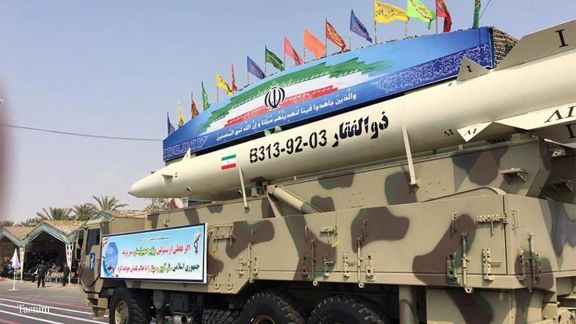
Iran has provided Russia with a large number of powerful surface-to-surface ballistic missiles, six sources told Reuters, deepening the military cooperation between the two US-sanctioned countries.
Iran's provision of around 400 missiles includes many from the Fateh-110 family of short-range ballistic weapons, such as the Zolfaghar, three Iranian sources said. This road-mobile missile is capable of striking targets at a distance of between 300 and 700 km (186 and 435 miles), experts say.
Iran's defence ministry and the Revolutionary Guards -- an elite force that oversees Iran's ballistic missile programme -- declined to comment. Russia's defence ministry did not immediately respond to a request for comment.
The shipments began in early January after a deal was finalised in meetings late last year between Iranian and Russian military and security officials that took place in Tehran and Moscow, one of the Iranian sources said.
An Iranian military official -- who, like the other sources, asked not to be identified because of the sensitivity of the information -- said there had been at least four shipments of missiles and there would be more in the coming weeks. He declined to provide further details.
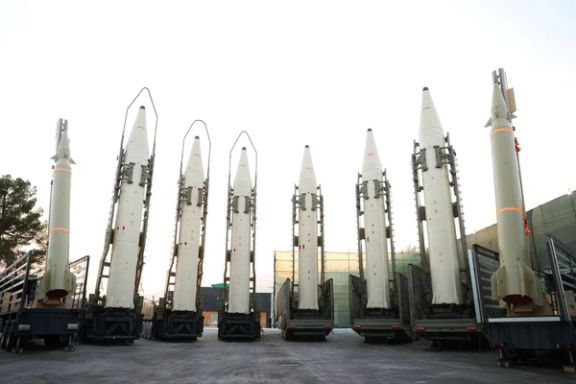
Another senior Iranian official said some of the missiles were sent to Russia by ship via the Caspian Sea, while others were transported by plane.
"There will be more shipments," the second Iranian official said. "There is no reason to hide it. We are allowed to export weapons to any country that we wish to."
UN Security Council restrictions on Iran's export of some missiles, drones and other technologies expired in October. However, the United States and European Union retained sanctions on Iran's ballistic missile programme amid concerns over exports of weapons to its proxies in the Middle East and to Russia.
A fourth source, familiar with the matter, confirmed that Russia had received a large number of missiles from Iran recently, without providing further details.
White House national security spokesperson John Kirby said in early January the United States was concerned that Russia was close to acquiring short-range ballistic weapons from Iran, in addition to missiles already sourced from North Korea.
A US official told Reuters that Washington had seen evidence of talks actively advancing but no indication yet of deliveries having taken place.
The Pentagon did not immediately respond to a request for comment on the missile deliveries.
Ukraine's top prosecutor said on Friday the ballistic missiles supplied by North Korea to Russia had proven unreliable on the battlefield, with only two of 24 hitting their targets. Moscow and Pyongyang have both denied that North Korea has provided Russia with munitions used in Ukraine.
By contrast, Jeffrey Lewis, an expert with the Middlebury Institute of International Studies at Monterey, said the Fateh-110 family of missiles and the Zolfaghar were precision weapons.
"They are used to point at things that are high value and need precise damage," said Lewis, adding that 400 munitions could inflict considerable harm. He noted, however, that Russian bombardments were already "pretty brutal".
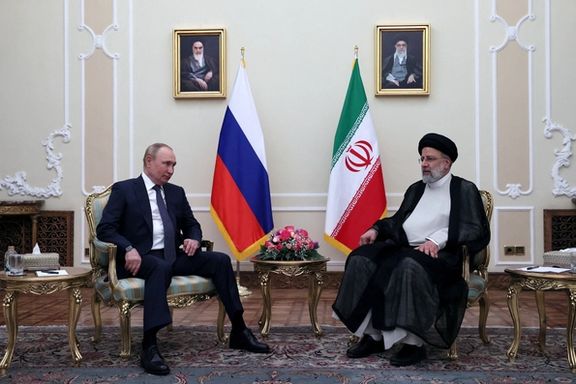
US Aid Delay Weakens Ukraine's Defenses
A Ukrainian military source told Reuters that Kyiv had not registered any use of Iranian ballistic missiles by Russian forces. The Ukrainian defence ministry did not immediately reply to Reuters' request for comment.
Former Ukrainian defence minister Andriy Zagorodnyuk said that Russia wanted to supplement its missile arsenal at a time when delays in approving a major package of US military aid in Congress has left Ukraine short of ammunition and other material.
"The lack of US support means shortages of ground-based air defence in Ukraine. So they want to accumulate a mass of rockets and break through Ukrainian air defence," said Zagorodnyuk, who chairs the Kyiv-based Centre for Defence Strategies, a security think tank, and advises the government.
Kyiv has repeatedly asked Tehran to stop supplying Shahed drones to Russia, which have become a staple of Moscow's long-range assaults on Ukrainian cities and infrastructure, alongside an array of missiles.
Ukraine's air force said in December that Russia had launched 3,700 Shahed drones during the war, which can fly hundreds of kilometres and explode on impact. Ukrainians call them "mopeds" because of the distinctive sound of their engines; air defences down dozens of them each week.
Iran initially denied supplying drones to Russia but months later said it had provided a small number before Moscow launched the war on Ukraine in 2022.
"Those who accuse Iran of providing weapons to one of the sides in the Ukraine war are doing so for political purposes," Iranian Foreign Ministry spokesperson Nasser Kanaani said on Monday, when asked about Tehran's delivery of drones to Russia. "We have not given any drones to take part in that war."
Rob Lee, a senior fellow at the Foreign Policy Research Institute, a Philadelphia-based think tank, said a supply of Fateh-100 and Zolfaghar missiles from Iran would hand Russia an even greater advantage on the battlefield.
"They could be used to strike military targets at operational depths, and ballistic missiles are more difficult for Ukrainian air defences to intercept," Lee said.
Deepening Ties With Moscow
Iran's hardline clerical rulers have steadily sought to deepen ties with Russia and China, betting that would help Tehran to resist US sanctions and to end its political isolation.
Defence cooperation between Iran and Russia has intensified since Moscow sent tens of thousands of troops into Ukraine in February 2022.
Russia's Defence Minister Sergei Shoigu met the head of Iran's Revolutionary Guards Aerospace Force, Amirali Hajizadeh, in Tehran in September, when Iran's drones, missiles and air defence systems were displayed for him, Iranian state media reported.
And last month, Russia's foreign ministry said it expected President Vladimir Putin and his Iranian counterpart Ebrahim Raisi to sign a broad new cooperation treaty soon, following talks in Moscow in December.
"This military partnership with Russia has shown the world Iran's defence capabilities," said the military official. "It does not mean we are taking sides with Russia in the Ukraine conflict."
The stakes are high for Iran's clerical rulers amid the war between Israel and Palestinian Islamist group Hamas that erupted after Oct. 7. They also face growing dissent at home over economic woes and social restrictions.
While Tehran tries to avoid a direct confrontation with Israel that could draw in the United States, its Axis of Resistance allies -- including Hezbollah in Lebanon and the Houthis in Yemen -- have attacked Israeli and US targets.
A Western diplomat briefed on the matter confirmed the delivery of Iranian ballistic missiles to Russia in the recent weeks, without providing more details.
He said Western nations were concerned that Russia's reciprocal transfer of weapons to Iran could strengthen its position in any possible conflict with the United States and Israel.
Iran said in November it had finalised arrangements for Russia to provide it with Su-35 fighter jets, Mi-28 attack helicopters and Yak-130 pilot training aircraft.
Analyst Gregory Brew at Eurasia Group, a political risk consultancy, said Russia is an ally of convenience for Iran.
"The relationship is transactional: in exchange for drones, Iran expects more security cooperation and advanced weaponry, particularly modern aircraft," he said.
(Exclusive reporting by Reuters)

Ali Ramazani, a prominent figure in Iran's academic community and winner of an international Olympiad, has been sentenced to three years and seven months in prison.
Ramazani, known for his achievements as a member of the Iranian National Team in the Microelectronics Olympiad has been convicted of charges including "conspiracy and collusion against national security and propaganda against the Islamic Republic."
Ramazani was arrested on October 16 by agents of the Ministry of Intelligence at his private residence, allegedly in connection with student protests.
Despite his academic accolades, including winning the Best Bachelor Thesis Award from the Institute of Electrical and Electronics Engineers in 2021, Ramazani has been subject to what his supporters claim are fabricated charges.
The incident reflects a concerning trend in Iran, where elite students have faced unjust imprisonment. Notably, Ali Younesi and Amir Hossein Moradi, both award-winning science students from Sharif University, were arrested in April 2020. They were accused of possessing explosive devices and alleged ties to "counter-revolutionary groups." However, the claims are widely viewed as part of trumped-up charges.
Younesi and Moradi, recipients of prestigious awards including gold and silver medals at international and national Olympiads, have been subjected to severe torture and prolonged solitary confinement. Despite their academic achievements, they were both given 16 years in prison.
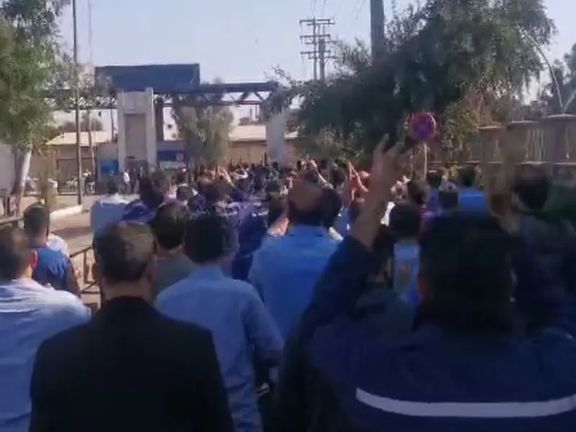
Workers at Iran's Ahvaz National Steel Group continued to strike for the second consecutive day on Wednesday over the suspension of several dissenting colleagues and the incomplete implementation of the job classification plan.
Managers of the industrial group suspended dozens of protesting workers, fueling discontent among the workforce. In September, 17 workers were sentenced to flogging, imprisonment, and fines, highlighting the authorities' crackdown on dissent, after taking part in protests.
Despite promises from management, the correct implementation of the job classification plan, pledged to be reflected in December salaries, has yet to materialize, further exacerbating tensions.
This round of strikes is not the first for the steel workers who have repeatedly taken strike action to express their grievances over recent months.
The Iranian National Steel Industrial Group, previously under the control of Amir Mansour Aria's investment firm, has transitioned to private ownership following legal proceedings and Aria's execution for embezzlement.
Workers across various industries, activists from different guilds, and retirees have been participating in numerous protests in recent months, seeking improvements in their working conditions.